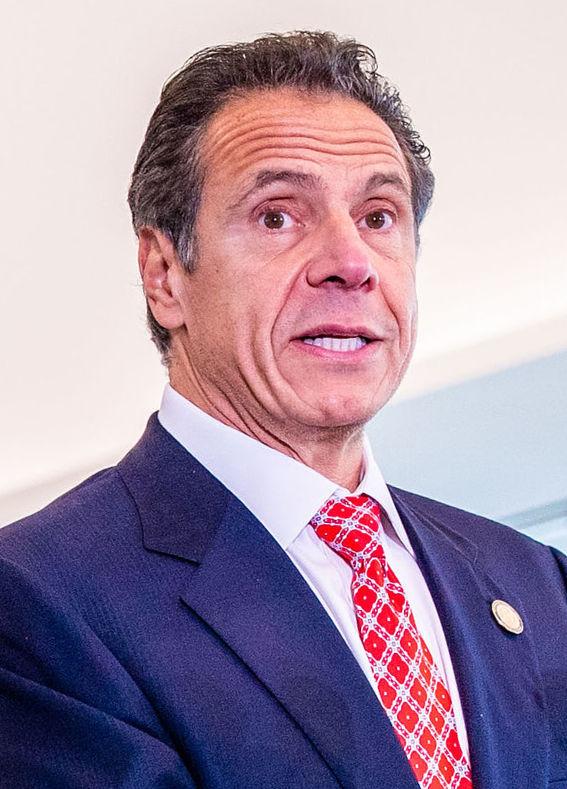Andrew Cuomo, a prominent figure in American politics, has left a notable mark as the 56th Governor of New York. Known for his leadership during crises and his policy initiatives, Cuomo’s career spans decades in public service, including roles as U.S. Secretary of Housing and Urban Development and New York State Attorney General. This article provides an in-depth overview of Andrew Cuomo’s political journey, achievements, and controversies, drawing on complete details featured in Britannica.
Andrew Cuomo Early Life and Political Rise
Born into a politically prominent family, Andrew Cuomo’s early years laid a solid foundation for his future in public service. Raised in Queens, New York, he is the son of Mario Cuomo, a respected former governor of New York, which immersed Andrew in the complexities of politics from a young age. A graduate of Fordham University and later Albany Law School, Cuomo combined academic rigor with firsthand experience, serving as an assistant to the U.S.Attorney General before embarking on his political journey.
His ascent quickly gained momentum through strategic roles, including Secretary of Housing and Urban Development under President Bill Clinton. His early career highlights reflect a blend of policy expertise and political acumen:
- Led urban housing initiatives focusing on economic development
- Navigated complex federal programs managing community reinvestment
- Built a reputation for tough negotiation skills and bipartisan collaboration
| Year | Position | Key Accomplishment |
|---|---|---|
| 1997-2001 | HUD Secretary | Revamped affordable housing programs |
| 2007-2010 | New York Attorney General | Cracked down on corporate fraud |
Major Achievements and Policy Initiatives in New York
During his tenure as governor, Andrew Cuomo spearheaded several transformative initiatives that reshaped New York’s policy landscape. Among his notable achievements was the enactment of the Marriage Equality Act in 2011, which established marriage rights for same-sex couples in New York, positioning the state as a leader in civil rights. Additionally, Cuomo made strides in healthcare reform, especially through the implementation of the New York Health Benefit Exchange, a marketplace designed to facilitate access to affordable health insurance under the Affordable Care Act. His administration also prioritized infrastructure, securing billions in funding for the modernization of the state’s transportation systems, including the revitalization of LaGuardia Airport.
- Economic Revitalization: Launched initiatives to bolster upstate economies with tax incentives and workforce training programs.
- Environmental Actions: Advanced the Climate Leadership and Community Protection Act aimed at reducing carbon emissions dramatically by 2050.
- Education Reform: Increased state funding for public schools and pushed for expansion of pre-kindergarten programs.
| Initiative | Year | Impact |
|---|---|---|
| Marriage Equality Act | 2011 | Legalized same-sex marriage statewide |
| New York Health Exchange | 2014 | Expanded health coverage to 3 million residents |
| Climate Leadership Act | 2019 | Set aggressive renewable energy goals |
Controversies and Challenges During Tenure
Andrew Cuomo’s administration grappled with a series of high-profile challenges that tested his leadership and public image. Among the most significant was the controversy surrounding nursing home COVID-19 deaths, where critics accused the administration of underreporting fatalities and mishandling protective measures. This sparked multiple investigations, fueling public distrust and political pressure. Additionally, Cuomo faced intense scrutiny over his management of the state’s pandemic response, with detractors highlighting delayed actions and inconsistent messaging that intricate New York’s battle against the virus.
His tenure was further overshadowed by allegations of sexual harassment brought forward by several former aides and employees. The statewide inquiry concluded with findings that contributed to Cuomo’s resignation announcement in August 2021.These difficulties were compounded by his strained relationship with certain members of the media and opposition legislators,which often resulted in public confrontations and fierce rhetoric.
- COVID-19 nursing home controversy: Underreporting and policy criticisms
- Sexual harassment allegations: Investigations leading to resignation
- Political clashes: Contentious interactions with lawmakers and press
- Public trust: Declining approval ratings amid scandals
| Issue | Impact on Tenure | Outcome |
|---|---|---|
| Nursing Home Deaths | Severe criticism, multiple investigations | Ongoing debates, reduced public support |
| Sexual Harassment Claims | Loss of political allies | Resignation in August 2021 |
| Media Relations | Frequent public disputes | Heightened media scrutiny |
Lessons Learned and Recommendations for Future Leaders
Andrew Cuomo’s career underscores the importance of strong interaction and decisive action during times of crisis. Leaders must prioritize transparency and maintain clear, consistent messaging to build public trust, especially when managing emergencies. His tenure also illustrates the need for adaptability; effective leaders are those who can pivot strategies based on evolving circumstances and new information. Additionally, fostering collaborative relationships across political and social divides can enhance problem-solving capabilities and support lasting policy outcomes.
For future leaders aiming to emulate successes while avoiding pitfalls, the following key recommendations emerge:
- Emphasize Ethical Leadership: Integrity and accountability should be non-negotiable foundations in governance.
- Engage with Stakeholders: Regular dialog with communities, experts, and opposition strengthens legitimacy.
- Leverage Data-Driven Decisions: Policies informed by rigorous analysis can better address complex challenges.
- Prioritize Mental Health and Welfare: Address the human element in policymaking to foster social resilience.
| Lesson | Recommendation |
|---|---|
| Transparency in crisis | Maintain open communication channels |
| Adapting policies | Stay flexible as new data emerges |
| Accountability issues | Implement strict ethical oversight |
| Stakeholder engagement | Foster inclusive collaboration |
The Way Forward
In sum, Andrew Cuomo’s political journey—from his early days in New York politics to his tenure as governor—reflects a complex legacy marked by both significant policy achievements and controversial challenges. As he continues to influence political discourse, understanding his career through a comprehensive lens remains essential. For a detailed exploration of Cuomo’s life and impact, Britannica offers a thorough account rooted in factual analysis and context.




